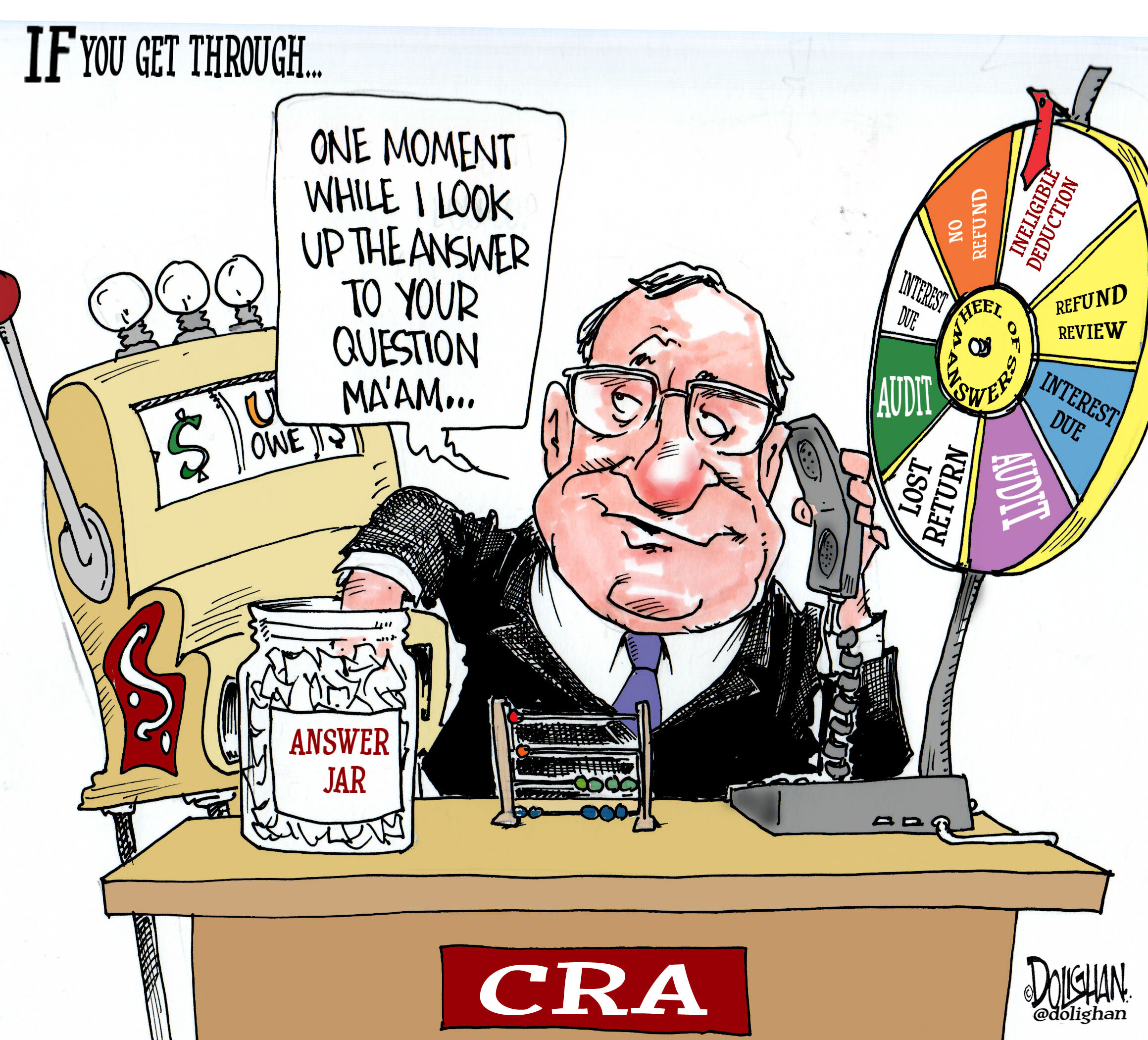Explore Small Business Finance Topics
Discover our most popular topics for Canadian solopreneurs and small business owners. From income tax and GST/HST to QuickBooks tutorials and managing your business finances, these guides are designed to help you move from financial uncertainty to financial confidence.
Click on any topic and scroll down to see related articles.
📑Canadian Income Tax
Guidance on filing and planning your Canadian taxes, from T1 and T2 returns to instalments
📊Managing Business Finances
From cash flow to pricing and metrics — learn to manage your business finances with confidence.
🏢 Canadian Business Structure
Should you incorporate? Stay informed on sole proprietorships, corporations, and registrations.
💰 GST/HST & QST
Understand how to register, file, and maximize input tax credits while avoiding common mistakes.
🧾 Guides and Tutorials
Practical accounting processes like reconciliations, journal entries, and reporting.
📝 Deductions & Expenses
Learn which expenses are CRA deductible and how to track them for maximum tax savings.
Quebec Taxes & Business
QST, Revenu Québec filings, Quebec payroll, and provincial rules every entrepreneur should know.
👤 Paying Yourself
Salary vs dividends, management fees, and how to pay yourself from your corporation or small business.
💻 QuickBooks Online & Tools
Tutorials, guides and time-saving tips for using QuickBooks Online effectively.
🏦 Money & Personal Finance
Personal finance strategies for entrepreneurs, from RRSPs to saving for taxes.

Two (and a Half) Options for Claiming Employee Home Office Expenses in 2020
As numerous employees shifted from their offices to their homes, Revenue Canada (CRA) and accountants were deluged with questions about how they could claim home office expenses. To stave off the complaints and questions, CRA decided to introduce a simplified method of claiming a tax deduction. It should be noted that employees have always been allowed to claim expenses relating to their employment as long as their employers completed and signed form T2200. The information from this form would then be entered on Schedule T777. The issue for this year is that filling out the form and completing the schedule is a somewhat tedious process and does not fit all employees’ who worked from home as a result of Covid imposed restrictions.

7 Lesser Know Facts About RRSPs
It is the time of year when everyone adult Canadian should be thinking about investing into their registered retirement savings plan (RRSP) prior to the deadline of March 1st. Many of you might think that you are young and have time or conversely that you are older and it’s too late. The truth is that it is never too early or late to start a RRSP. You simply need to set a goal and start doing it.
The great benefit of investing in RRSPs, which is the single best tax optimization strategy available to all Canadians, is that it reduces the amount of income taxes that you will have to pay. The tax savings is based on your marginal tax rate. Since everyone’s income is allocated to different tax brackets as your income increases, the marginal tax rate represents the highest tax bracket which applies to the top portion of your income.

Why Every Canadian Should File a Personal Tax Return
A friend of mine has been in a nightmare scenario with CRA. She hadn’t filed her tax return in a few years mostly because she had one T4, figured that she didn’t owe any tax and was simply procrastinating on an unenjoyable task. In 2020 she receive a notice of assessment from CRA indicating that she owed several thousand dollars, with no additional details except that they had added $25k to her actual income earned. Over the past year, she has called them numerous times to get an explanation and each time she is told that the file is being escalated and someone will get back to her. To date nobody has gotten back to her. To make matters worse, CRA passed this information i.e. additional income on to Revenue Quebec (without any details) which resulted in a significant assessment from them. She still has no idea why she was assessed this amount and is now in the unenviable position of calling both revenue agencies on a weekly basis to manage the situation.

Information on Filing T4s/RL-1s and T4As for Small Business Owners
When I was employee, I never really gave much thought to the T4 (and the Quebec equivalent RL-1) process. I knew that sometime around February an envelope would appear on my desk with a tax document which I would need to reflect on my tax return. I suppose I thought that someone, somewhere pressed a button and the T4s were generated. When I became a small business accountant, who was now either responsible for preparing this information or providing guidance to my clients, I realized that the process was somewhat more complicated.

Know Your Small Business Tax Deadlines For 2022
With the beginning of a new year upon us, tax submission deadlines for individuals and businesses are starting to loom. Every small business owner must adhere to these deadlines or risk facing penalties for late filing of returns plus interest on any overdue balances. Knowing these deadlines can help you ensure that you don’t simply waste your hard earned money and run afoul of CRA and RQ. I have compiled a list of deadlines for all unincorporated small business owners which includes sole proprietors and self employed individuals.
Note that the usual deadline for sales tax (GST/HST and QST) payments and income tax returns is April 30th. However, since this falls on a Saturday, the deadline is pushed to Monday, May 2nd, 2022.

21 Gift Ideas to Make Any Small Business Owner Happy
Most of us know at least one small business owner or entrepreneur who maintains an unconventional work schedule, is physically attached to their laptop, sees every get together as a networking opportunity and/or enjoys passionate discussions about spreadsheets. For many business owner, gifts that make their working lives easier and workspaces more efficient (and cozier) are often greatly appreciated since so much of their time is often spent immersed in their businesses. The list of gift ideas below, many of which are fairly inexpensive, may help to toggle some inspiration for the small business owner that you know:

How to determine if your business idea Is profitable
I have spoken to and mentored many lovely entrepreneurs who have wonderfully innovative ideas for a new business. But, as any business owner can attest to, starting a new business is hard work. Before even thinking about launching, you need to ensure that the business is actually viable. You do this by assessing your market, reviewing potential demand for your product and analyzing the competition. Once you have done this, you then need to ensure that your business can be profitable.
In order to determine profitability, you need to understand both the pricing of your products and/or services and the relevant costs. This can be difficult to do especially when you don’t have any history. Your only choice is to estimate based on the best information available. In this article, I give you some guidance on the financial information that you need to compile.

3 Tools that allow you to Remotely Connect to your Computer from Anywhere
The past few years, and especially the last year has changed the way many business owners and employees work. There has been a mass adoption of virtual workspaces where people are no longer tethered to their offices. Instead the technology to make working from anywhere has increased and improved significantly and is accessible by anyone who has a working internet connection. Business can be conducted from your home, an airport, a café or (if you are lucky) on the beach.
While many software, apps and programs are available in the cloud and can directly be accessed directly from your computer or smartphone internet browser, there are times when you need access to your actual desktop or another computer so that you can access the programs and data files that reside there. Luckily, there are numerous tools out there that allow small business owners to remotely connect to their computers . Three of these are discussed below:

18 Accounting Terms that every new business owner should know.
When starting a new business, you will be subjected to a variety of financial jargon. This can come from your bank, Revenue Canada or Revenue Quebec, suppliers, customers and various other business partners. If you are unfamiliar with this terminology, these requests which are often quite straightforward, can become stressful if you are not exactly sure what they mean. It is important, therefore, to arm yourself with at least a basic vocabulary of the most common financial and accounting terminology that will give you a better understanding of your business and therefore be well equipped to answer any questions that come your way.

8 Inexpensive Ways to Market Your Services
One of the most daunting aspects of starting a new small service based business is building a client base (and nothing is quite so exciting as getting those first few clients). When trying to generate new business, it is important to cast a wide net as you never know where potential clients may be lurking. Once you have established your business, you will discover the methods that work best for you and you can finesse your marketing strategy. You can also choose to be more selective as you determine which type of client is the best fit for your business.
There are many ways to build a client base, even with limited resources, some of which are discussed below:

Tax Return Checklist for Individuals and Unincorporated Business Owners
The deadline to file tax returns is starting to loom large, resulting in anxiety for some individuals and small business owners. The good news is that the stress can be managed fairly easily with some simple organization techniques. The best starting point is to evaluate your tax situation and prepare a checklist of all the documentation that you will need with respect to your specific tax situation. A checklist can help reduce (or eliminate) important items that might get forgotten in the rush to put everything together (and its always satisfying to cross something off the list). I have compiled a list of some of the more common income, deductions and credits that the majority of taxpayers are likely to have:

Business Tax Deadlines for Sole Proprietors for 2021
While many businesses got a break from some onerous tax deadlines back in the early days of Covid, unfortunately there are no such extensions for 2021. Almost all tax deadlines are now exactly as they were in previous years and small business owners must adhere to them or risk facing penalties for late filing plus interest on any overdue balances. That being said, it is possible that a greater amount of taxpayer relief will be available this year if you can demonstrate financial hardship due to Covid.
I have compiled a list of deadlines for all unincorporated small business owners which includes sole proprietors and self employed individuals. You can also sign up to get a calendar of tax due dates (for sole proprietors) for your ongoing reference.

9 Year End Tax Planning Tips for Small Business Owners
For numerous people around the world, the end of this year cannot come soon enough. It has been an unprecedented few months, the effects of which will be felt for many years to come. And while it has been extremely difficult for some small business owners such as restaurants and storefront retail, others have seen their businesses flourish. e.g. toilet paper manufacturers, Amazon and Zoom. Many businesses were able to pivot their business models to provide goods and services that cater to the “new normal” in interesting and creative ways. Some started selling masks while others increased their online course offerings. Beleaguered restaurants started expanding their delivery menus and offerings. To a dispassionate business analyst, this year has been somewhat fascinating and will provide a great deal of data to economists and analysts alike in the years to come.
It is time for business owners everywhere to start contemplating some end of year tax planning tips to not only ensure that they can maximize their tax deductions and reduce taxes payable, but to streamline the tax filing process in the New Year. Even if you are incorporated and your year end date is not December 31st, it is a good time to take advantage of calendar year deadlines for personal tax planning purposes.

How to Use QBO Class and Location Tracking to Better Analyze Your Data
A powerful, but lesser know feature of QBO is the ability to organize your data by using two separate features which are location tracking and class tracking. These features allow business owners to effectively create a higher level of categorization, in addition to their accounts, which allows for significantly better reporting and analysis.
Class and location tracking are essentially classification mechanisms that allow for reporting by an additional layer of categorization. The primary way to categorize transactions in any accounting system is to assign them to specific accounts eg. sales, purchases, computer equipment, travel, meals, office expenses etc. This is referred to as a “Chart of Accounts”. There does, however, exist two additional layers ways to categorize your transactions in QBO which work on top of the chart of accounts allowing each transaction can be grouped into a broader category. This is particularly useful for companies that have separate locations and/or divisions where they might want to see their results grouped together for deeper analysis and a better understanding of the performance of your business or organization.

3 Government Wage Subsidy Programs for Startups and Small Businesses
Budget limitations and inexperience can make hiring new employees a difficult decision for small business owners. Luckily, If you are a startup or a small business in Canada, there are numerous programs that can help you get up and running. Some programs provide help with your cash flow in the form of financing, grants, subsidies and tax credits while others provide resources such as training, mentoring and coaching. Many small businesses particularly when they are in the startup stage should take the time to research these programs and send applications to the ones that might be applicable. Below are a list of three popular programs that are worth exploring further:
Note that the programs listed below are independent of COVID. For a list of COVID related wage subsidies and tax credits, please see the Government of Canada website
